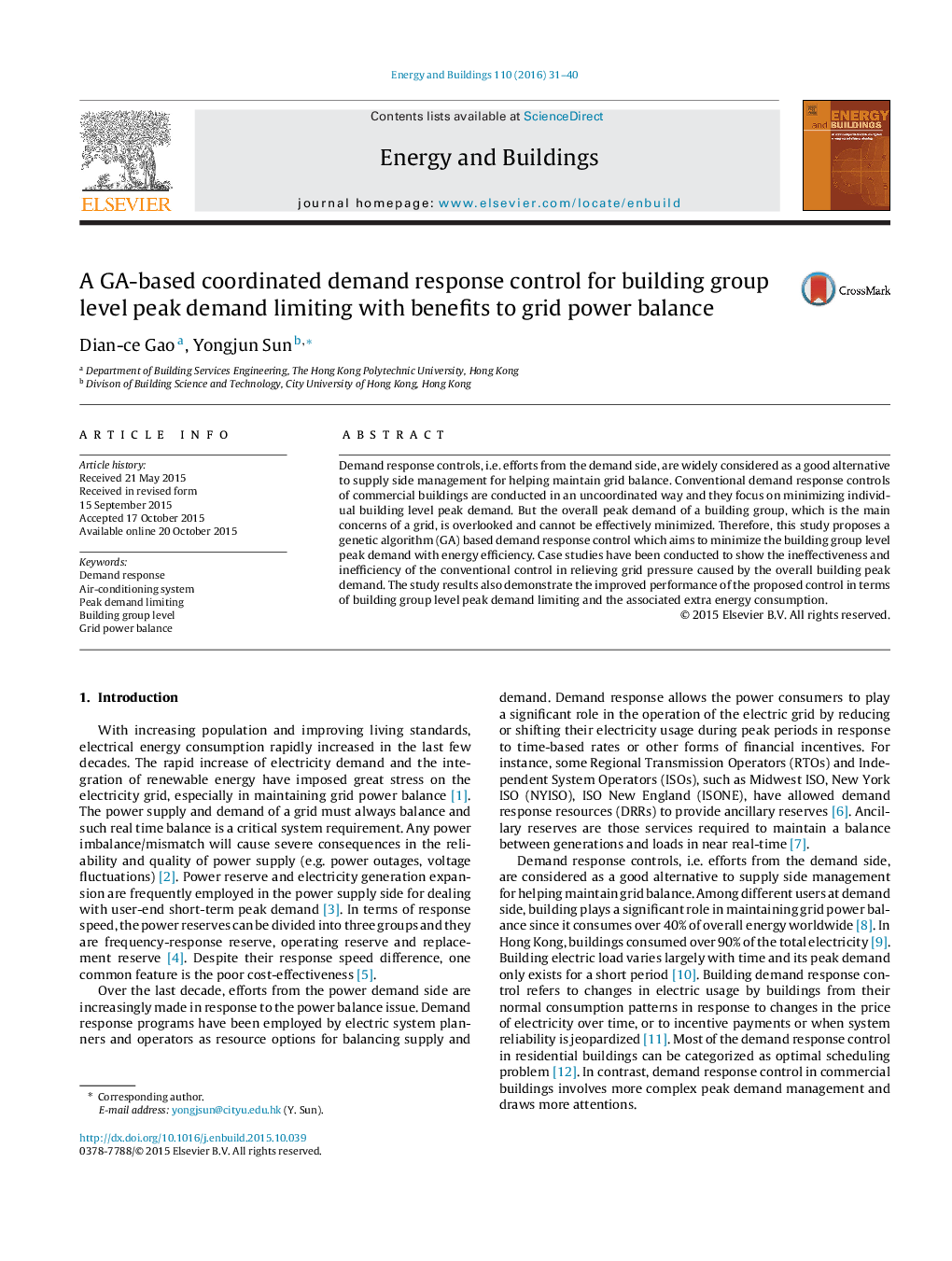| Article ID | Journal | Published Year | Pages | File Type |
|---|---|---|---|---|
| 262257 | Energy and Buildings | 2016 | 10 Pages |
•Quantify ineffectiveness of a conventional demand response in relieving grid stress.•Propose a new control that minimizes building-group-level peak demand with efficiency.•Compare the proposed control with the conventional one at building-group-level.
Demand response controls, i.e. efforts from the demand side, are widely considered as a good alternative to supply side management for helping maintain grid balance. Conventional demand response controls of commercial buildings are conducted in an uncoordinated way and they focus on minimizing individual building level peak demand. But the overall peak demand of a building group, which is the main concerns of a grid, is overlooked and cannot be effectively minimized. Therefore, this study proposes a genetic algorithm (GA) based demand response control which aims to minimize the building group level peak demand with energy efficiency. Case studies have been conducted to show the ineffectiveness and inefficiency of the conventional control in relieving grid pressure caused by the overall building peak demand. The study results also demonstrate the improved performance of the proposed control in terms of building group level peak demand limiting and the associated extra energy consumption.
